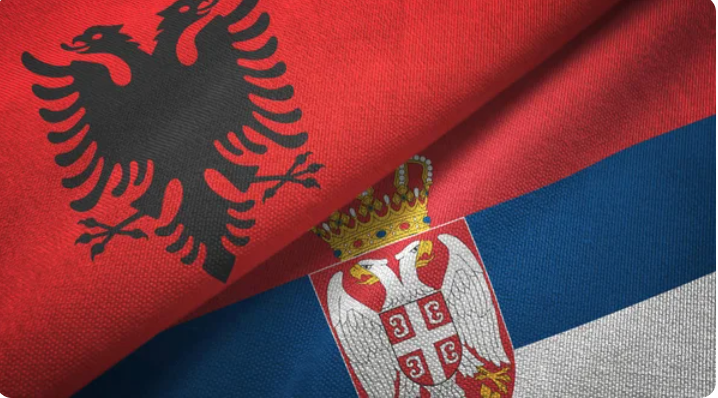Serbia bans two Albanian civil society representatives amid controversy

Serbia has banned 14 civil society representatives from a number of countries, including two from Albania, citing “national security risks.” The two banned Albanians are Edlira Lilaj from Help Organization and Gazmir Memaj from the Mary Ward Loreto Foundation, based in Tirana. Both were in Belgrade on January 21–22, attending a seminar organized by the Austrian Erste Foundation to discuss non-governmental organization (NGO) strategies for revenue generation—a workshop entirely apolitical in nature.
Why is this important: The incident has raised concerns about Serbia’s approach to civil society engagement and regional cooperation. The ban comes at a time of heightened tensions within Serbia, marked by ongoing student-led anti-government protests. Critics argue that targeting NGO representatives reflects political paranoia and an unjustified escalation against civil society.
Context: According to Lilaj and Memaj, the Serbian security services, in collaboration with local police, intercepted them as they returned to their hotel.
“We were stopped by plainclothes officers who asked for our IDs and then transported us to the police station in unmarked cars,” explained Lilaj.
The pair were handed documents in Serbian ordering them to leave the country within 24 hours and banning their re-entry for a year. “We signed the papers without understanding their content, as no explanation was provided beyond vague claims of national security concerns,” said Memaj.
The ordeal lasted approximately two and a half hours, during which neither individual was given further clarification about the allegations against them. “It felt absurd to be labeled as a threat to national security when our agenda was strictly related to NGO work, far removed from any political context,” Memaj told Top Channel.
Reactions: Following the incident, the Albanian Ministry for Europe and Foreign Affairs summoned Serbia’s ambassador to Albania, Slobodan Vukčević, to express “serious concern” over the expulsions.
A ministry statement conveyed regret over the event, calling it inconsistent with efforts to maintain good neighborly relations and stressing its negative impact on the free movement of Albanian citizens.
“The ministry has requested detailed explanations and urged Serbian authorities to reconsider their decision, as well as ensure that such incidents are not repeated in the future. The case is being closely monitored by our embassy in Belgrade,” the statement read.
What else: Memaj speculated that the decision might be linked to ongoing protests in Belgrade, stating, “This feels like political paranoia. There is no justification for labeling civil society representatives as security risks, especially given our non-political objectives during the visit.”
Serbia’s recent actions have drawn comparisons to previous crackdowns on dissent seen during moments of internal unrest. Whether this incident signals broader hostility toward civil society remains to be seen.
Looking ahead: The Albanian government has pledged to pursue diplomatic channels to address the issue, while civil society groups across the Balkans have called for greater transparency and mutual respect in cross-border interactions. Whether Serbian authorities will heed the calls to reverse their decision remains to be seen, but the event has cast a shadow over Serbia’s relations with its neighbors at a delicate time for the region.


